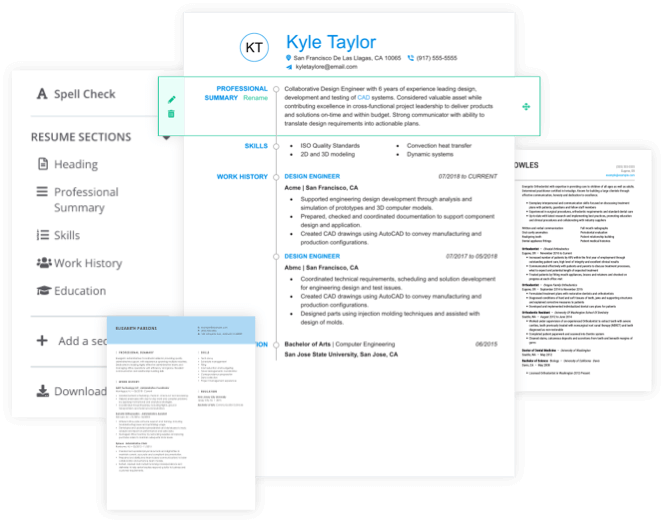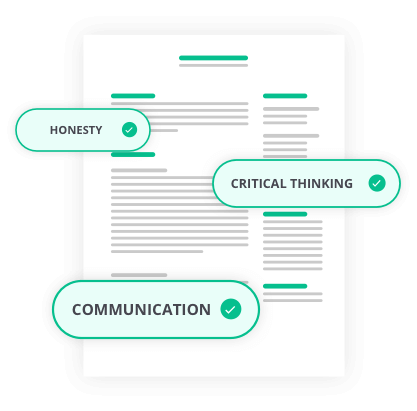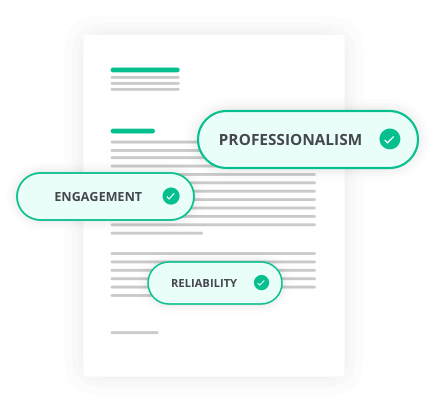- Featured in:

What Are Management Skills?
Management skills are a set of goal-oriented and results-driven abilities needed to lead effectively. It includes key character traits such as emotional intelligence, confidence and decision-making.
Good management skills are essential for the company’s success. They drive the company’s vision and culture forward while developing the team’s maximum potential.
Management skills involve a mix of both hard and soft skills. To lead a team successfully, you need a balance of the best industry-specific abilities and people skills.
Hard skills allow you to get the job done effectively by making you an expert in working with the right tools and techniques.
Soft skills, like communication and analytical skills, on the other hand, fuel your ability to convey ideas and relay information effectively, and to visualize the best response to a situation
The importance of management skills
From executive management to entry-level employees, management skills are valuable across all levels. These skills encompass a unique set of abilities and traits including confidence, decision-making and problem-solving that result in top performance. These skills help build meaningful relationships and empower you to be innovative and strategic in your career and personal development.
Top Management Skills
Management skills shape the organizational culture and play a vital role in the team’s productivity. Let’s look at the key management skills that will make your career soar!
Communication
Having effective communication in the workplace impacts the company’s productivity and success. A good communicator overcomes barriers with clarity and transparency. Communication skills help you avoid misunderstandings and grasp the real meaning of what’s being said. It’s a key component to getting the job done correctly and being able to delegate appropriately.
Listening
Taking the time to actively listen to your colleagues and clients gives you insight into their needs and a broader understanding of their point of view. To be a good listener, focus on what the other person is saying and how they are saying it. Instead of thinking about how you will respond, pay attention to body language and tone. If you need to clarify something, ask follow-up questions or rephrase what they’ve said to confirm that you understood correctly.
Analytical thinking
With analytical skills, you can make sense of complex situations. This skill is needed to gather and break down information by allowing you to organize and assimilate facts. Applying analytical skills in the development of systematic solutions can ultimately lead to improved productivity and performance. It also aids in conflict resolution and strategy development.
People management
People management is the ability to encourage, guide and empower your team. Effectively leading people relies on soft skills such as empathy, open communication and patience. Part of the process includes training and motivating employees to optimize productivity and promote professional growth. Good people management skills lead to organizational success by building trust, developing the company’s culture and strengthening the workflow.
Time management
Time management is knowing how to plan and decide which tasks are the most urgent in order to prioritize them. Good time management maximizes productivity efforts in a shorter period of time.
Business knowledge
Business knowledge is a combination of skills, experiences and capabilities required to start and run a business. This includes skill sets such as finance, marketing, sales and customer service needed in order to succeed in day-to-day business operations.
Leadership
Whether you hold a management position or not, leadership skills can help you in all aspects of your career. These skills enable you to guide and mentor others to reach a shared goal. It’s a combination of several skills such as patience, reliability, creativity and empathy that you can use to empower your team and deliver results.
Delegation
Delegation is a vital management skill. It is the transfer of responsibility from one person to another. When you delegate tasks, you create an organizational flow for which you are responsible. Delegation is important because it empowers employees to develop new skills and builds trust and confidence.
Emotional intelligence
Emotional intelligence is the ability to understand and manage the emotions of others in addition to your own. It starts with self-awareness, social awareness, empathy and relationship management. This skill strongly contributes to company success by factoring in that employees are people first and foremost.
Transparency
Being proactive, honest and straightforward by involving your team in the department’s goals and concerns builds trust. Employees want to be a part of a workplace culture that prioritizes delivering the truth, so being transparent is a powerful trust-building tool.
Conflict resolution
In a work environment, disagreements are inevitable. The key to harmonious interactions is to establish a process focused on reducing conflict, starting by tackling the root of any dispute. This will enable you to have a better understanding of the situation and how to proceed. For a positive and assertive approach, be honest and communicate clearly about the issue. The goal is to encourage both parties to comprehend the underlying causes behind the conflict and identify solutions.
Decision making
All professionals need strong decision-making skills to face complex challenges. Whether it’s planning goals, strategies or policies, it all starts with a decision. Decisions are required to set the company up for growth and solve conflicts. In short, decision-making plays a vital role in driving organizational performance.
Negotiation skills
Negotiation skills are a mix of abilities used to reach an agreement between two or more parties. This includes skills such as communicating to persuade and influence, and may involve planning and strategizing. To negotiate effectively, listening skills and understanding negotiation styles and strategies is key to your success.
Strategic thinking
Developing innovative ways to keep the company growing and competitive is the key to accomplishing business objectives, overcoming obstacles and addressing challenges. Strategic thinking skills enable you to apply critical thinking to help the company reach its goals. This includes research and information gathering to obtain targeted results.

How to Showcase Management Skills
Recruiters and hiring managers are particular about the skills they want to see on a candidate’s resume. Your application documents can make it to the top of the stack by highlighting your top management skills.
The skills section on your resume lets the recruiter assess your top qualifications at a glance. To grab the attention of the recruiter, build a targeted skills list. Start by reviewing the job description carefully. You will notice that the requirements in the job post list keywords that you must include throughout your resume and skills section.
How to showcase management skills in your resume
Focus on the skills that are relevant to the job to which you are applying. This will help you avoid unnecessary wording and tailor your resume to the specifics the employer wants in a candidate.
Use six to eight bullet points to organize your skills section and make it easier to read. You can also display skill levels. Here is an example of a targeted yet straightforward skill section:
- SEO marketing — Expert
- Direct email marketing — Expert
- Conflict resolution — Advanced
- Time-management — Advanced
- Microsoft Office — Advanced
- Communication — Proficient
- Spanish and Portuguese — Fluent

When listing your management skills in your “experience” section, include accomplishments and job responsibilities related to the job to which you want to apply.
When describing your accomplishments, use action verbs and numbers. For example, tell how many people you mentored or a large financial budget you managed. Numbers give a better scope of your responsibilities and help hiring managers put your accomplishments into perspective.
For example:
Atlas Air Inc | Miami, Florida
Regional Manager, November 2017-January 2020
- Established adequate controls to drive individual accountability and trained 85 staff members to update their certifications.
- Monitored and communicated with all five stations to ensure all customers and 25 vendors, ground handlers, and company personnel met or exceeded all company policies or procedures.
- Ensured that all personnel involved in Pharma Handling were qualified as required by the Atlas Pharma policy guide.
JobHero offers a complete guide on How to Write a Resume. Or, to create an interview-winning resume in just minutes simply follow the prompts in our Resume Builder.
For more on skill sections, check out our 3 Simple Steps to a Stellar Resume Skills Section.
How to showcase management skills in your cover letter
A cover letter provides the recruiter with additional insight into your qualifications beyond those listed on your resume.
When applying for a management position, a cover letter gives you the opportunity to show that you have the skills to get the job done and inspire others to meet goals.
In a few sentences, explain why you’re a strong candidate for the job. State why you’re excited about the opportunity and how the job matches your career goals.

When you write cover letters for a management position, you’ll want to detail your management skills and experience to help differentiate you from competing candidates. Use one or two paragraphs to connect your accomplishments to the position, focusing on your leadership abilities and managerial roles.
Include the skills the employer is looking for in their ideal candidate. Read the job post, looking for the specific management skills required for the role. Some management skills that relate directly to management functions may include “planning,” “organizing,” “coordinating” and “oversight.”
The stronger your cover letter and resume match the job description and requirements, the better your chances of acing the interview and landing the job!
Quantify your achievements in a way that speaks directly to the employer’s needs. To accomplish this successfully, describe your work experience by providing your achievements with data or numbers.
Here is an example of how to highlight your management skills in your cover letter:
My managerial background includes 5+ years of experience impacting nonprofit entities. I was able to reduce employee turnover rates by 25% by creating more opportunities for messaging outreach. Additionally, I successfully cut overhead costs by around $1,900 per month by implementing apps and QR codes for instant messaging options. These groundbreaking developments tripled brand awareness and following.
A cover letter is always a great way to complement your resume. It also gives the employer an idea of your personality. If you need help crafting the perfect letter, try our Cover Letter Builder and cover letter templates to create a professional letter in just minutes!
How to showcase management skills during your interview
Interviews for management roles can be stressful because you have the pressure of needing to prove you’re the ideal candidate for the job.
Because your interviewer will most likely have management experience themselves, take the time to plan and prepare.
You can start by taking a look at JobHero’s How to Answer Job Interview Questions. Preparing your answers ahead of time will give you the confidence you need during your interview.

Be ready to provide compelling examples of how you applied your management skills to your work experience by using measurable accomplishments. This will show the hiring manager that you are results-driven!
For instance, if asked about your leadership style, you can highlight the management approach you use to deliver results. Here’s an example:
“My focus is to establish open communication with my team. I offer guidance by communicating with clarity and sharing my expertise. I also allow my team to define and complete their work plan and responsibilities without micromanaging. When I managed the retail team of 15, our sales increased by 30%, and I found that everyone performed their best while letting them work independently.”
Taking steps to prepare yourself is an effective way to improve your performance during the interview
How to Improve Management Skills
Strong leaders must continuously look for ways to sharpen their skill sets. We’ve put together the top three actionable tips that can improve your management skills:
1. Know your team.
It’s essential to get to know your team. Learn their different strengths, skills and motivations. By knowing certain character traits of each person in your team, you will be able to use their strengths and abilities to help them be more efficient, creative and productive. This fosters a better work environment and builds trust. Try implementing initiatives to develop strong teamwork. Team-building activities, for example, can offer fun ways to connect.
2. Improve communication.
Open communication between employees achieves an overall better understanding. Employees feel less stressed and under pressure when they can engage with their leaders regularly. When communicating your goals, create a structured environment and clear objectives to work toward. Also, establishing the reason why something needs to be done, instead of just how and when, allows for better creativity and initiative.
3. Motivate
Be a hands-on coach by being directly involved in helping your staff develop the skills that will help them increase efficiency and improve productivity. Provide plenty of feedback and encouragement by explaining how their role impacts the company’s goals.
Yale University explains that the secret of effective motivation is to help people focus on the meaning and impact of their work rather than on the financial aspects.
Motivation reflects something unique about us. It helps change our way of thinking, feeling and behaving. As a result, we can improve performance, personal growth, and our sense of purpose.






